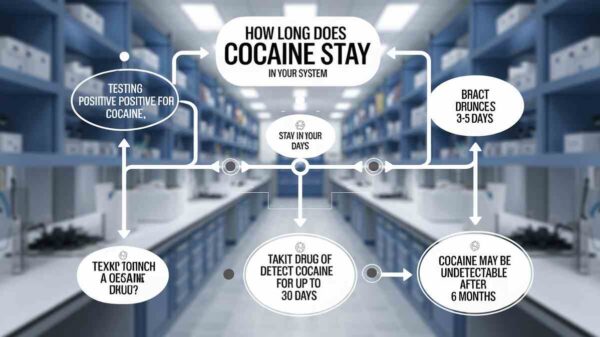Ketamine therapy has gained significant attention as an innovative and promising treatment for mental health conditions, including depression, anxiety, PTSD, and chronic pain. While ketamine therapy provides quick symptom relief and benefits many, it is important to recognize that it may not be appropriate for everyone. In this blog, we will explore the key aspects of ketamine therapy, its potential benefits, who is most likely to benefit, and who may not be an ideal candidate for this treatment.
What Is Ketamine Therapy?
Ketamine therapy involves administering a low-dose ketamine infusion in a medical setting, typically lasting around 40 minutes per session. It is delivered intravenously, ensuring precise dosing and immediate effects. During treatment, trained professionals closely monitor patients to ensure their safety and comfort.
The primary goal of ketamine therapy is to provide rapid relief from mental health conditions, particularly those that are resistant to conventional treatments like antidepressants and psychotherapy. Ketamine’s mechanism of action, which involves modulating glutamate, a neurotransmitter critical to mood and emotional regulation, offers an alternative approach to managing conditions like depression, anxiety, and PTSD.
 How Does Ketamine Therapy Work?
How Does Ketamine Therapy Work?
While exact mechanism of ketamine therapy is still being studied, it is believed to work by promoting formation of new neural connections in the brain. This process enhances mood and helps to alleviate symptoms of mental health conditions. The drug’s interaction with the NMDA receptor helps regulate glutamate levels associated with mood regulation and cognitive function.
Additionally, ketamine has anti-inflammatory properties, which could play a role in treating conditions that involve chronic inflammation, such as depression and PTSD. While more research is needed to fully understand ketamine’s effects, its ability to offer rapid symptom relief sets it apart from traditional treatments.
Who Is Good Candidate for Ketamine Therapy?
Ketamine therapy is particularly beneficial for those with treatment-water-resistant depression who have not responded to conventional antidepressants. People with acute depression or suicidal thoughts can also benefit from the rapid relief that ketamine provides. Other conditions that ketamine therapy has been found effective in treating include anxiety disorders, obsessive-compulsive disorder (OCD), and chronic pain conditions like neuropathic pain.
However, for ketamine therapy to be effective, candidates must meet specific health criteria. Good candidates typically:
- Have treatment-resistant depression or anxiety: They have not responded to traditional treatments similar as antidepressants or psychotherapy.
- Are physically healthy: Since ketamine can increase heart rate and blood pressure, candidates should be in good cardiovascular health.
- Are well-informed: Candidates should understand the therapy process, its potential benefits, and risks.
- Have a strong support system: Having emotional and logistical support is essential for those undergoing ketamine therapy.
Who Should Avoid Ketamine Therapy?
Ketamine therapy is not suitable for everyone. Certain conditions and personal histories can make it a less appropriate treatment option. People who may not be good candidates for ketamine therapy include those who:
- Cardiovascular issues: Since ketamine can elevate heart rate and blood pressure, those with uncontrolled hypertension or heart disease need to be carefully assessed.
- Have a history of substance abuse: Ketamine has the potential for misuse, so individuals with a past of substance abuse should undergo thorough evaluation before treatment.
- Have certain psychiatric conditions: Ketamine may worsen symptoms in individuals with schizophrenia, schizoaffective disorder, or other psychotic disorders.
- Are pregnant or breastfeeding: The safety of ketamine during pregnancy or breastfeeding has not been well-established, and it is generally avoided in these cases.
- Have liver or kidney disease: Ketamine may pose risks to individuals with liver or kidney conditions due to potential complications.
A thorough consultation with healthcare provider is necessary to assess whether ketamine therapy is appropriate for each individual.
Benefits of Ketamine Therapy
- : One of the most prominent advantages of ketamine therapy is its power to provide quick relief from symptoms. In contrast to traditional antidepressants, which may take weeks to show results, ketamine can significantly improve mood and alleviate symptoms in a matter of hours or days. This makes it especially beneficial for people experiencing acute depressive episodes or suicidal thoughts.
- Adequate Treatment-Resistant Conditions: Ketamine has shown considerable promise for individuals with treatment-resistant depression, providing an other pathway for those who have not found relief with SSRIs, psychotherapy, or other conventional treatments.
- Potential for Long-Term Benefits: Although research is ongoing, some studies suggest that multiple rounds of ketamine treatment can lead to sustained improvements in mood and functioning. Additionally, ketamine may enhance the effectiveness of other therapies, such as psychotherapy.
- Improved Quality of Life: Reducing symptoms of depression, anxiety, and chronic pain, ketamine therapy can significantly enhance a patient’s quality of life, authorize to engage fully in daily activities, social interactions.
- Versatility in Treatment Applications: Beyond depression, ketamine has shown promise for treating variety of conditions, including anxiety, PTSD, and chronic pain. Its versatility makes it a valuable treatment choice for people with complex or multiple conditions.
 Potential Side Effects of Ketamine Therapy
Potential Side Effects of Ketamine Therapy
While ketamine therapy can be very effective, it is not without risks. Some potential side effects include:
- Common Side Effects: These may include dizziness, nausea, headaches, and temporary dissociative symptoms (such as feeling detached from one’s surroundings). These effects are usually mild & subside shortly after the session.
- Psychological Effects: Some patients may experience anxiety, agitation, or vivid dreams during or after treatment. Although these effects are temporary, they can be distressing for some individuals.
- Cardiovascular Effects: Ketamine can increase blood pressure & heart rate, which can be risky for individuals with pre-existing heart conditions.
- Risk of Dependency and Abuse: While ketamine is not highly addictive, individuals with a history of substance abuse may be at tall risk of misuse. Careful evaluation and monitoring are necessary to minimize this risk.
- Long-Term Effects: The long-term impact of ketamine therapy is still under investigation. More research is needed to understand its potential long-term effects on mental and physical health.
Managing Side Effects
Close monitoring by healthcare professionals is important for managing side effects effectively. If side effects arise, the treatment protocol may be adjusted to ensure patient safety. Open communication between patients & their healthcare providers is crucial for addressing concerns and ensuring optimal results.
Conclusion
Ketamine therapy has shown notable promise in treating conditions similar as depression, anxiety, PTSD, and chronic pain. Its ability to provide rapid symptom relief & its potential for long-term benefits make it a compelling treatment option, particularly for those with treatment-resistant conditions. It is important to note that ketamine therapy may not be acceptable for everyone. A consultation with healthcare provider is essential to determine if ketamine therapy is right choice for you.
If you are considering ketamine therapy, it is essential to be fully informed about the process, potential benefits, and risks. A comprehensive evaluation will help ensure that the treatment is tailored to your needs and is safe and effective in treating your condition.


 How Does Ketamine Therapy Work?
How Does Ketamine Therapy Work? Potential Side Effects of Ketamine Therapy
Potential Side Effects of Ketamine Therapy














